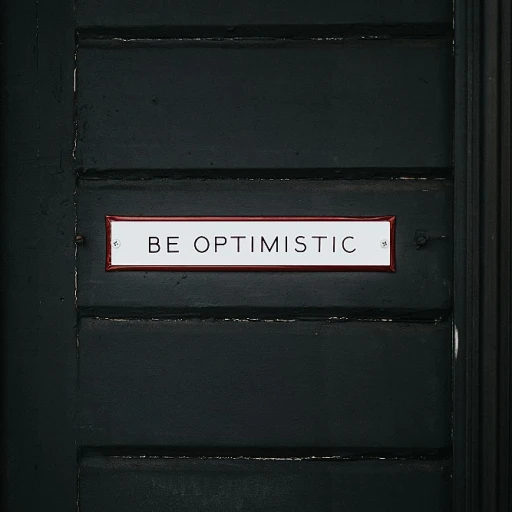
Understanding Talent Assessment Tools
Exploring the Essentials of Talent Assessment Tools
In today’s competitive job market, the integration of effective talent assessment tools is paramount for organizations striving to enhance their employer branding. These tools are designed to provide a comprehensive evaluation of a candidate's capabilities, helping hiring managers make data-driven decisions. Understanding the core functionalities of these tools can significantly streamline the hiring process, ensuring that the best candidates are identified efficiently. Talent assessments are designed to evaluate candidates' skills, cognitive abilities, and personality traits, offering a detailed insight into their potential job performance. By employing a diverse array of assessments, such as job simulations and personality tests, organizations can better predict how candidates will perform in specific roles. This, in turn, improves the overall candidate experience, reflecting positively on the company's talent acquisition strategy. Key features of these assessment tools often include the ability to administer standardized tests, analyze results through data-driven methodologies, and provide insights that aid in making informed hiring decisions. Utilizing these tools during the hiring process not only enhances the effectiveness of employee selection but also contributes to the development of a robust employer brand. By incorporating talent assessment as a pivotal element of the hiring process, companies can ensure they are attracting and retaining high-caliber talent through integrated people, process, and technology. This strategic approach helps organizations create a trustworthy and performance-oriented work environment, thus solidifying their position in the market as attractive employers.The Role of Talent Assessment in Employer Branding
Building a Strong Employer Brand with Talent Assessments
Talent assessment plays a crucial role in shaping a company's employer brand. When organizations utilize effective assessment tools, they make informed hiring decisions that enhance the candidate experience and align with their core values. This approach not only attracts top talent but also promotes a positive image of the organization as a fair and desirable workplace. Integrating assessment methods such as skills and personality tests helps organizations to evaluate candidates holistically, ensuring a good fit for specific roles. The best talent assessments provide hiring managers with data-driven insights into a candidate's cognitive ability, personality traits, and problem solving skills. This comprehensive evaluation process aids in selecting candidates who are likely to perform well in their jobs and contribute positively to the organization’s culture. Moreover, when candidates perceive the hiring process as fair and objective, it improves the company's reputation in the job market. Implementing job simulations and other key features of assessment tools helps create transparency and fairness during recruitment. Candidates appreciate a hiring process that respects their time and offers an opportunity to demonstrate their abilities in real-world scenarios. Understanding the significance of these key assessment features is integral to modern employer branding. Companies looking to refine their hiring strategy must seek tools that support a fair and respectful candidate experience. This not only builds trust with potential employees but also helps retain top talent, as the recruitment process itself reflects the company's larger commitment to growth and development.Innovative Trends in Talent Assessment
Embracing Technological Advancements in Talent Assessment
In the rapidly evolving landscape of talent acquisition, staying ahead requires embracing innovative trends in talent assessment. These trends not only streamline the hiring process but also enhance the overall candidate experience, a crucial component in strengthening employer branding.
AI and Machine Learning: The Game Changers
Artificial intelligence (AI) and machine learning are at the forefront of modern assessment tools. These technologies help in analyzing vast amounts of data to provide insights into candidate performance and personality traits. By leveraging AI, companies can tailor assessment methods to evaluate cognitive ability and problem-solving skills, ensuring a more precise fit for the job role.
Interactive Job Simulations
Interactive job simulations have emerged as a popular trend, offering a realistic preview of the job environment. These simulations allow candidates to demonstrate their skills in a controlled setting, providing hiring managers with a clearer picture of potential job performance. This approach not only aids in making informed hiring decisions but also improves the candidate experience.
Data-Driven Decision Making
With the influx of digital tools, data-driven decision-making has become integral to the assessment process. Companies now rely on data analytics to identify key features that predict job success. This trend ensures that hiring decisions are based on objective metrics rather than subjective opinions, enhancing the fairness and efficiency of the hiring process.
Focus on Personality and Cultural Fit
While technical skills remain crucial, there is a growing emphasis on assessing personality and cultural fit. Modern personality tests are designed to evaluate personality traits that align with company values and culture. This focus not only aids in talent development but also ensures that new hires contribute positively to the organizational environment.
As companies continue to innovate in their talent assessment strategies, these trends offer a roadmap for enhancing employer branding and creating a more efficient and engaging hiring process.
Choosing the Right Talent Assessment Tools
Selecting Optimal Tools for Talent Assessment
Navigating the landscape of talent assessment tools can be overwhelming, given the myriad of options available. Evaluating candidates effectively requires tools that align with the specific needs of your hiring process. Here are several factors to consider when choosing the best talent assessment tools for your organization:- Role-Specific Assessments: Choose tools that tailor their assessments to the roles you're hiring for, offering insights into the skills and competencies relevant to the job.
- Data-Driven Insights: Opt for tools that provide actionable data, enabling informed hiring decisions. Tools offering analytics on candidate performance, cognitive ability, and personality traits can refine the assessment process.
- Flexibility and Scalability: The assessment tool should be adaptable to your organization's size and changing needs, supporting talent acquisition across different departments and levels.
- Candidate Experience: Prioritize tools that enhance candidate experience by providing transparent and engaging assessments. User-friendly interfaces and clear communications can positively impact your employer brand.
- Integration with Existing Systems: Ensure the tools can seamlessly integrate with your current HR systems, making the talent assessment process more efficient.
Case Studies: Success Stories in Employer Branding
Success Stories: Real-World Insights
In the ever-evolving world of employer branding, real examples provide invaluable insights into the power of effective talent assessment tools. Many companies have successfully enhanced their employer branding by strategically incorporating various talent assessments into their hiring process. For instance, a leading multinational corporation implemented a comprehensive suite of assessment tools that focused on both cognitive ability and personality traits. This approach allowed them to systematically evaluate candidates, ensuring the best fit for specific roles. The process also included job simulations, giving hiring managers a clear view of potential job performance. This data-driven method not only streamlined their hiring process but also significantly improved candidate experience, aiding in bolstering their employer brand. Furthermore, one tech company leveraged their talent acquisition strategy by introducing personality tests into their hiring decisions. By focusing on key features like problem-solving abilities and development potential, they crafted a more holistic view of their candidates. The result was a marked increase in the alignment of new hires with company culture and values, leading to enhanced role performance and reduced turnover rates. Such success stories exemplify the importance of selecting the right assessment tools tailored to company-specific needs. As the demand for skilled talent intensifies, integrating innovative assessment methods can help organizations stay ahead in the competitive job market. This commitment to data-driven hiring not only reinforces an employer's brand but also attracts top-level talent eager to contribute to the company's success.Future Outlook: Evolving Talent Assessment and Employer Branding
Anticipating Future Shifts in Talent Assessment
The landscape of talent assessment is evolving rapidly, driven by technological advancements and changing workforce dynamics. As organizations strive to enhance their employer branding, it's crucial to stay ahead of these trends to attract and retain top talent effectively.
Embracing AI and Machine Learning
Artificial intelligence (AI) and machine learning are becoming integral to the talent assessment process. These technologies offer data-driven insights that help hiring managers make informed decisions. By analyzing candidate data, AI can predict job performance and identify the best fit for specific roles, streamlining the hiring process and enhancing the candidate experience.
Focus on Soft Skills and Personality Traits
While technical skills remain important, there's a growing emphasis on assessing soft skills and personality traits. Employers are recognizing the value of emotional intelligence, adaptability, and problem-solving abilities in achieving long-term success. Personality tests and job simulations are being used more frequently to evaluate these attributes, ensuring candidates align with the company's culture and values.
Integration of Virtual Reality in Assessments
Virtual reality (VR) is emerging as a cutting-edge tool in talent assessments. VR simulations provide immersive environments where candidates can demonstrate their skills in real-world scenarios. This innovative approach not only enhances the assessment process but also offers candidates a unique and engaging experience, positively impacting employer branding.
Data Privacy and Ethical Considerations
As the use of data-driven assessment tools grows, so do concerns about data privacy and ethical considerations. Companies must prioritize transparency and ensure compliance with data protection regulations. Building trust with candidates by safeguarding their information will be essential for maintaining a positive employer brand.
Continuous Development and Feedback
Future talent assessments will likely focus on continuous development and feedback. Employers are moving towards a more holistic approach, where assessments are not just a one-time event but part of an ongoing development process. This shift encourages employee growth and aligns with the evolving expectations of today's workforce.
In summary, staying abreast of these trends will be key to leveraging talent assessments effectively in your employer branding strategy. By adopting innovative tools and approaches, organizations can enhance their hiring process, improve candidate experience, and ultimately strengthen their employer brand.













